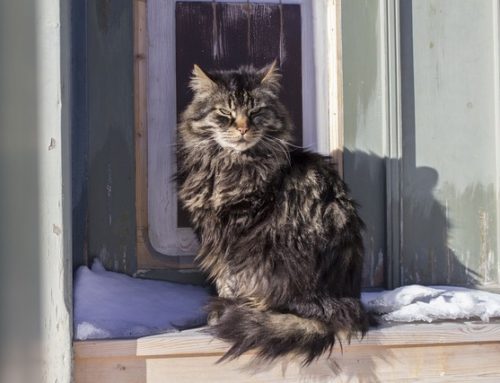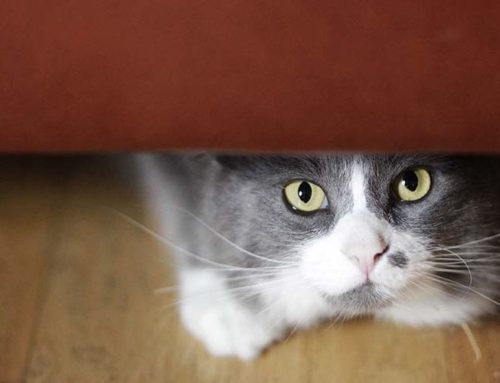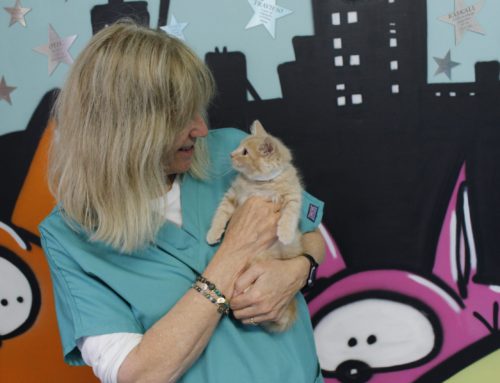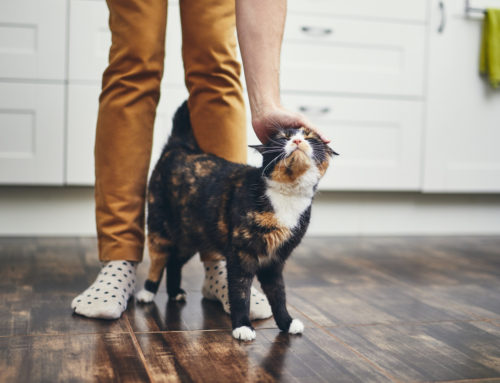The holidays are coming up and it’s time to deck the halls and host festive get togethers. If you have a cat in the house, the holidays can present added dangers for your pet. Follow these few simple tips to keep your pet merry and safe this holiday season!

- Cat safe décor: Cats are curious by nature and they look at decorations as new toys to play with. When setting up your tree, make sure it is anchored so your cat can’t tip it over if he attempts to climb the tree. Also, make sure light cords are secured. Avoid any tinsel and ornaments that could be toxic. Hang pet safe ornaments on the bottom third of the tree and breakable ones high up or forgo them entirely.
- Tinsel and tenterhooks: Needles, tinsel, hooks, ribbon, foil and other holiday decorations can be tempting toys for your cat and are dangerous if eaten.
- Foliage follies: Mistletoe, berries and poinsettias are toxic to animals and can cause an upset stomach or worse reaction. If you have a live tree and your cat is tempted to drink out of the tree stand, skip the chemicals in the tree water.
- No doggie bags for kitties: A change of diet, even for one meal, can cause an upset stomach or diarrhea for a cat. Skip the table scraps, bones and chocolate and keep your garbage secure. Let your guests know not to feed your pet scraps or secure your pet in another room at mealtime when you have company.
- Holiday wonder-slumber-land: As you prepare to entertain for the holidays, create a safe area during the hustle and bustle of the season in a spare bedroom, office or on another floor of your home. This will cut down on potential escapes when company comes and goes as well.
- Shopping for kitty claus: Cats love to play and one way to distract them from the temptations of the tree and other decorations is to get them some gifts of their own. A new catnip toy or wand toy can help distract your pet. If you don’t already have a cat tree or condo, consider adding one to give your cat something to climb.
- Have an emergency plan: You should always have an emergency plan just in case something happens with your pet. This is very important if your veterinarian is either closed for the day or if your pet needs more intensive treatment than your vet may offer. Know where your local emergency veterinary hospital is located and the best route to get there in case you need it.





